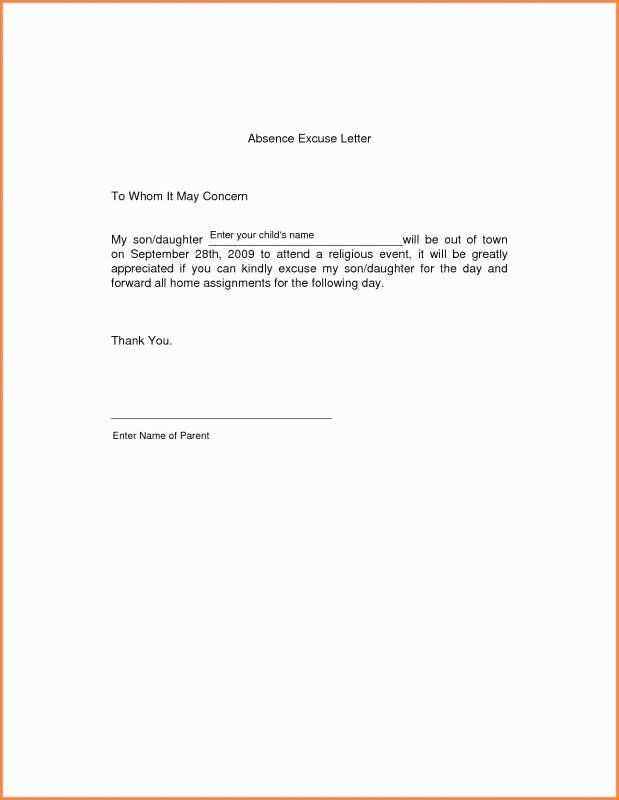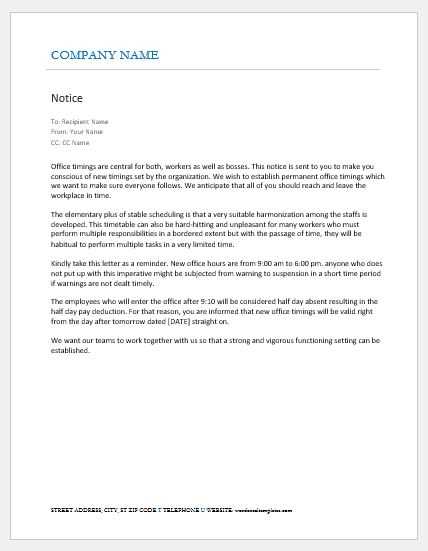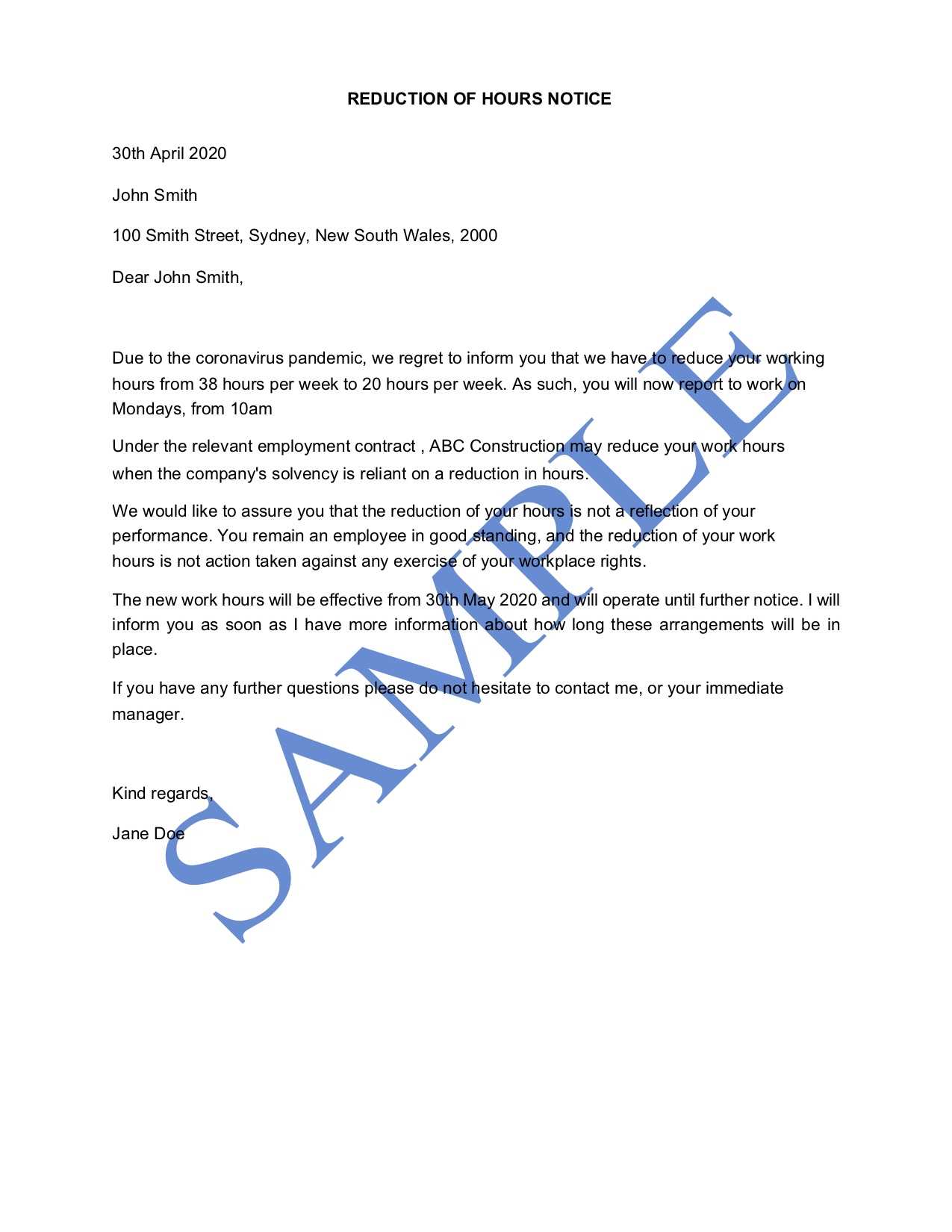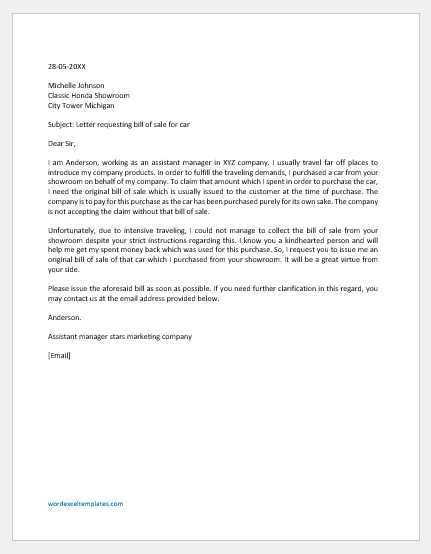Letter template reduce working hours

Requesting a reduction in working hours requires clarity and professionalism. Below is a simple letter template that can be adapted for various situations, ensuring clear communication of your request.
Sample Template

Dear [Manager’s Name],
I hope this message finds you well. I am writing to request a reduction in my working hours due to [specific reason, e.g., personal circumstances, health-related issues, family obligations, etc.]. After considering the current workload and my situation, I believe that adjusting my schedule will allow me to continue delivering quality work while maintaining a better work-life balance.
I would like to propose the following schedule changes:
- Reduction of [X hours] per week.
- Adjusted working days: [list proposed working days].
- Alternative solutions: [e.g., flexible hours, remote work].
I am confident that these adjustments will not impact my productivity or the team’s goals. I am happy to discuss this request further and find a solution that works for both of us. Thank you for considering my request.

Sincerely,
[Your Name]

Key Points to Consider

- Be clear and specific about the number of hours you wish to reduce.
- Offer potential solutions to ensure productivity remains unaffected.
- Be open to discussions and adjustments to find a mutually beneficial outcome.
By presenting your request in a straightforward and well-thought-out manner, you can ensure a positive conversation with your employer about reducing working hours.
Letter Template for Reducing Working Hours
How to Request a Reduction in Hours for Personal Reasons
Best Practices for Writing a Formal Request to Modify Work Hours
Key Information to Include in a Work Hour Reduction Request
Legal Aspects of Reducing Employee Work Hours
How to Address Potential Employer Concerns in Your Request
What to Do After Submitting Your Adjustment Letter for Work Hours
Begin your letter by clearly stating the specific change you are requesting. Specify the number of hours you wish to reduce, providing both the previous and new proposed hours. Keep the tone respectful, but firm in your request. Ensure that you express the reasoning for the change–whether it’s due to personal health, family obligations, or another important matter–without oversharing. Keep this section concise but informative enough for your employer to understand the need for this modification.
Be sure to highlight any flexibility you may offer, such as adjusting specific days or being available on an on-call basis. By showing your willingness to collaborate, you make it easier for your employer to agree to the adjustment without concerns over workflow disruptions.
Key information to include: the date you’d like the reduced hours to begin, how you plan to manage your workload, and any measures to ensure productivity remains unaffected. Make sure to mention your understanding of how the new schedule could impact your role, while offering suggestions for solutions. This demonstrates that you’ve thought ahead about potential challenges.
Legally, work hour reductions should comply with employment laws regarding part-time work, pay, and benefits. Research your rights and ensure that the reduction doesn’t conflict with any existing agreements, such as labor contracts. It’s advisable to reference company policies related to work hour adjustments, if available, to frame your request within the existing guidelines.
Anticipate your employer’s concerns, such as the impact on team dynamics or project deadlines. Address these issues in your request by offering alternatives or outlining your plan for managing work effectively. Showing that you’ve thought about the broader picture can help alleviate potential hesitations.
After submitting your request, be patient and give your employer adequate time to review the proposal. Follow up politely if you don’t receive a response within a reasonable timeframe. If your request is granted, ensure you confirm any new arrangements in writing to avoid misunderstandings.